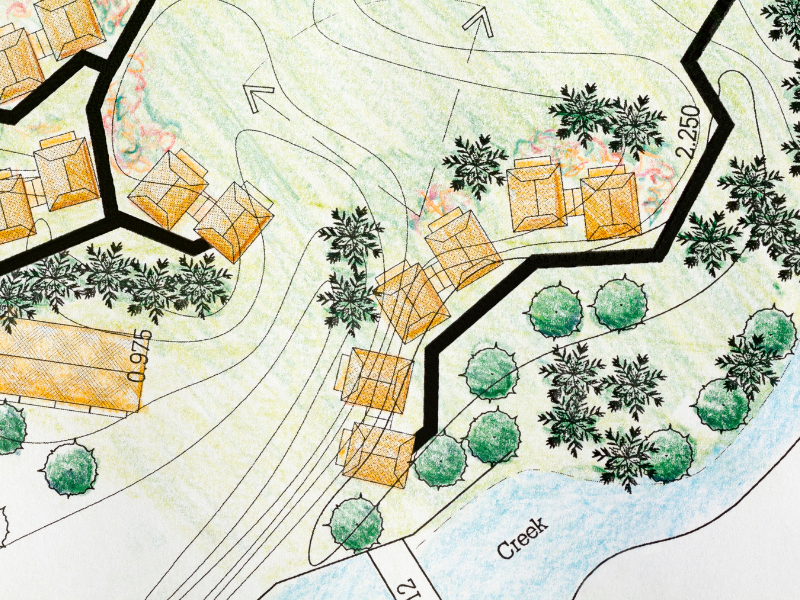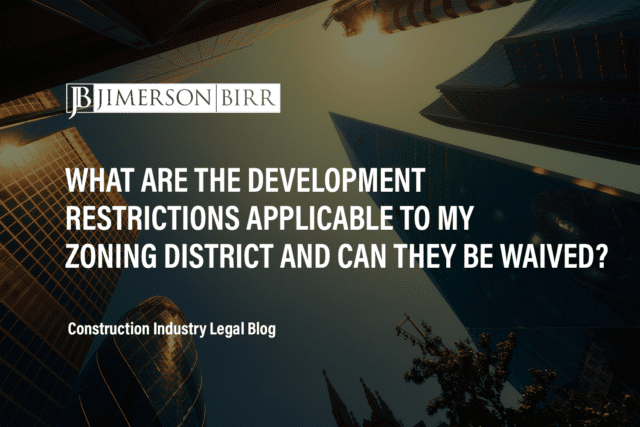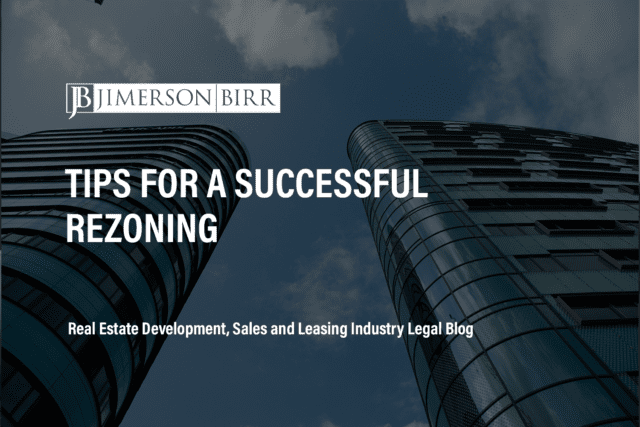What are site plans?
Site plans are detailed drawings or maps that show the location, layout, and design of a proposed development project on a specific piece of land. Typically, such plans include property boundaries, building locations, parking areas, landscaping, and other central site features.
These plans are essential for developers, property owners, and local governments to help ensure that new development projects are compatible with the surrounding environment and meet the community’s needs. They are typically required as part of the permitting process and must be approved by the local government before construction can begin.
Crucially, site plans ensure compliance with local zoning and land use regulations, building codes, and environmental regulations. They may be prepared by architects, engineers, or other design professionals. They must be detailed enough to clearly understand the proposed project to the local government, neighboring property owners, and other stakeholders.
Need help with a matter related to site plans? Schedule your consultation today with a top land use and zoning attorney.
In Florida, which laws and regulations relate to site plans?
Some fundamental laws and regulations include:
- Florida Statutes §§ 163.2511 – 163.3253: These statutes provide comprehensive planning in Florida and set out the requirements for local governments to develop and implement comprehensive plans that guide land use decisions, including site plans.
- Local Zoning and Land Development Restrictions: Each local government in Florida has its own set of zoning and land development regulations that govern land use within its jurisdiction. These regulations establish the types of uses allowed on a property, the setbacks and height limitations that apply, and the procedures for obtaining site plan approval.
What are common issues regarding site plans that lead to litigation?
The following issues are among the most common in actions regarding site plans in land use and zoning matters:
- Zoning Violations: One of the most common issues that lead to litigation regarding site plans in land use and zoning is a violation of zoning regulations. This can occur when a property owner fails to obtain the necessary permits, builds in a prohibited area, or exceeds height or setback requirements.
- Change In Land Use: A change in land use that is not allowed under the current zoning regulations can also lead to litigation. For example, suppose a property owner wants to convert a residential property into a commercial property. In that case, they may need to obtain a variance or a conditional use permit, which neighboring property owners can contest.
- Environmental Concerns: Environmental concerns such as impacts to wetlands, streams, or wildlife habitat can also lead to litigation. Developers may need to obtain permits from state and federal agencies to build in these areas, and lawsuits can be filed if these permits are denied or if environmental regulations are violated.
- Neighborhood Disputes: Disputes between neighbors over the impacts of site plans can also lead to litigation. For example, if a property owner builds a structure that blocks a neighbor’s view, the neighbor may file a lawsuit claiming that their property rights have been violated.
We are value-based attorneys at Jimerson Birr, which means we look at each action with our clients from the point of view of costs and benefits while reducing liability. Then, based on our client’s objectives, we chart a path forward to seek appropriate remedies.
To determine whether your unique situation may necessitate litigation, please contact our office to set up your initial consultation.
What are effective measures to minimize the risk of litigation over site plans?
Some practical measures to minimize the risk of litigation over site plans include:
- Engage with the Community: Engage with the community and stakeholders, such as neighbors, local business owners, and civic organizations. This can help you identify potential concerns and objections early in the process and address them before they turn into litigation.
- Document the Decision-Making Process: Document the decision-making process thoroughly, including any meetings, discussions, and decisions regarding the site plan. This can help you demonstrate that you have followed a fair and transparent process and minimize the risk of claims of impropriety or bias.
- Conduct Thorough Due Diligence: Conduct a thorough due diligence process to identify potential legal issues, such as easements, zoning restrictions, or environmental concerns, that could impact the site’s development. This can help you avoid surprises later in the process.
What evidence does a plaintiff generally need to file a lawsuit regarding site plans successfully, and what are common legal defenses to those claims?
The evidence that a plaintiff needs to file a lawsuit regarding site plans in land use successfully and zoning will depend on the specific claims made in the lawsuit. However, in general, a plaintiff must show that the site plan or zoning decision has violated their property rights and that they have suffered some form of harm.
Some common types of evidence that a plaintiff may use to support their claims in a land use and zoning lawsuit include:
- Site Plan Documents and Zoning Regulations: Plaintiffs may rely on site plan documents and zoning regulations to show how the land is intended to be used and how it is zoned and to demonstrate how the site plan or zoning decision violates those regulations.
- Expert Testimony: Plaintiffs may use expert testimony from architects, planners, engineers, or other professionals to support their claims and to provide evidence about the impact of the site plan or zoning decision on their property rights.
- Photographs and Other Physical Evidence: Plaintiffs may use photographs and other physical evidence to demonstrate how the site plan or zoning decision has affected their property, such as by showing changes to the view, noise levels, or traffic patterns.
Some common legal defenses to claims in a land use and zoning lawsuit include:
- Lack of Standing: Defendants may argue that the plaintiff does not have standing to bring the lawsuit because they have not suffered any actual harm or injury due to the site plan or zoning decision.
- Rational Basis: Defendants may argue that the site plan or zoning decision was made for a legitimate government purpose and was based on a rational basis, a low standard of review that generally defends government decision-making.
To see what actions or defenses may be available for your unique situation, please contact our office to set up your initial consultation.
Frequently Asked Questions
Why is a site plan important?
A site plan is important because it clearly explains how a piece of land will be used and developed and ensures that the development meets local zoning and land use regulations.
What is the difference between residential and commercial zoning?
Residential zoning typically allows for single-family homes, apartments, and other housing types, while commercial zoning allows for businesses, offices, retail stores, and other non-residential uses.
Who is responsible for regulating land use zoning?
Local governments, such as cities or counties, are typically responsible for regulating land use zoning through their planning and zoning departments.
Have more questions about a site plans-related situation?
Crucially, this overview of site plans does not begin to cover all the laws implicated by this issue or the factors that may compel the application of such laws. Every case is unique, and the laws can produce different outcomes depending on the individual circumstances.
Jimerson Birr attorneys guide our clients to help make informed decisions while ensuring their rights are respected and protected. Our lawyers are highly trained and experienced in the nuances of the law, so they can accurately interpret statutes and case law and holistically prepare individuals or companies for their legal endeavors. Through this intense personal investment and advocacy, our lawyers will help resolve the issue’s complicated legal problems efficiently and effectively.
Having a Jimerson Birr attorney on your side means securing a team of seasoned, multi-dimensional, cross-functional legal professionals. Whether it is a transaction, an operational issue, a regulatory challenge, or a contested legal predicament that may require court intervention, we remain a tireless advocate every step of the way. Being a value-added law firm means putting the client at the forefront of everything we do. We use our experience to help our clients navigate even the most complex problems and come out the other side triumphant.
If you want to understand your case, the merits of your claim or defense, potential monetary awards, or the amount of exposure you face, you should speak with a qualified Jimerson Birr lawyer. Our experienced team of attorneys is here to help. Call Jimerson Birr at (904) 389-0050 or use the contact form to set up a consultation.
Here are some blogs written by JB attorneys that provide more information about site plans:

We live by our 7 Superior Service Commitments
- Conferring Client-Defined Value
- Efficient and Cost-Effective
- Accessibility
- Delivering an Experience While Delivering Results
- Meaningful and Enduring Partnership
- Exceptional Communication Based Upon Listening
- Accountability to Goals











